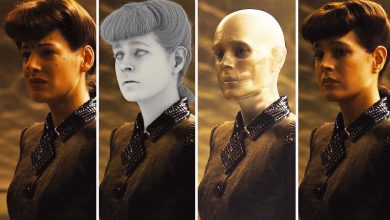Coverage of film industry labor issues, such as unions and contracts

The film industry has long been a hotbed for labor issues, ranging from disputes over contracts and wages to the formation of unions and advocacy groups. In recent years, these issues have gained increasing attention as the industry has faced challenges related to the COVID-19 pandemic and the rise of streaming platforms. In this article, we will explore some of the key labor issues facing the film industry in 2022, including the role of unions, the importance of contracts, and ongoing efforts to promote diversity and inclusion.
One of the most prominent labor issues in the film industry is the role of unions. In the United States, the Screen Actors Guild (SAG) and the Directors Guild of America (DGA) are the two main unions representing actors and directors, respectively. These unions negotiate contracts with studios and production companies on behalf of their members, providing protections and benefits such as minimum pay rates, health insurance, and residuals (payments for repeat broadcasts or streaming of a film or television show).
However, not all film industry workers are unionized, and there has been ongoing debate about the benefits and drawbacks of unionization. Some argue that unions are necessary to ensure fair treatment and compensation for workers, while others believe that they can be inflexible and hinder the creative process. Additionally, the process of unionization can be difficult, as it requires workers to pay dues and can lead to conflicts with management.
Another key labor issue in the film industry is the importance of contracts. In the highly competitive and unpredictable world of film and television production, contracts are critical for protecting the rights and interests of all parties involved. They outline the terms of employment, including pay, benefits, and working conditions, as well as intellectual property rights and other legal issues.
However, contracts can be complex and often favor the interests of studios and production companies over those of individual workers. This can lead to disputes and negotiations, particularly when it comes to issues such as credits and compensation. It is important for workers to understand their rights and to seek the advice of experienced legal counsel when negotiating contracts.
In recent years, there has been growing awareness of the need for diversity and inclusion in the film industry. This includes efforts to increase representation of marginalized groups, such as people of color, women, and LGBTQ+ individuals, both in front of and behind the camera. It also includes initiatives to promote fair treatment and opportunities for all workers, regardless of their background.
These efforts have been driven by a variety of factors, including social and political movements, consumer demand, and the recognition that diverse and inclusive stories and perspectives can be both artistically and commercially successful. However, achieving real progress on diversity and inclusion has proved challenging, and there is still much work to be done to create a more equitable and inclusive film industry.
In conclusion, the film industry continues to grapple with a range of labor issues, including the role of unions, the importance of contracts, and the need for diversity and inclusion. These issues are complex and multifaceted, and there are no easy solutions. However, by raising awareness and advocating for change, industry workers and advocates can work to create a more fair and just film industry for all.



